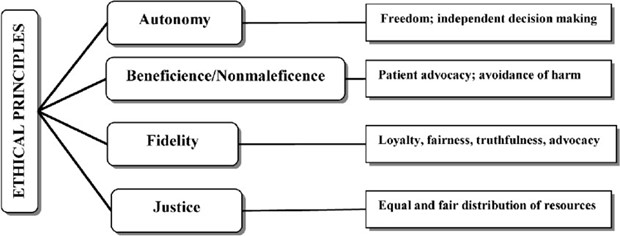A nurse is assisting with the admission assessment for a cilent who is receiving treatment following a situational crisis. Which of the following actions is the nurse's priority?
Asking the client to identify the cause of the crisis
Determining if the client has thoughts of self-harm
Identifying if friends or family are available to help
Identifying the client's coping skills
The Correct Answer is B
Determining if the client has thoughts of self-harm: This is the priority action for the nurse in this situation. Assessing the client's risk of self-harm or suicide is crucial to determine the level of immediate intervention required. It helps identify the severity of the crisis and enables the nurse to implement appropriate measures to ensure the client's safety.
In the context of a client with generalized anxiety disorder who is exhibiting signs of distress and seeking to be taken care of, it is essential to assess for suicidal ideation or intent. Clients with mental health disorders, especially when experiencing high levels of stress, may be at an increased risk of self-harm or suicide. Therefore, it is vital for the nurse to prioritize the assessment of the client's safety and risk of self-harm in order to provide appropriate care and interventions.
Incorrect:
A- Asking the client to identify the cause of the crisis: While it is important to gather information about the cause of the crisis to understand the client's situation, it is not the nurse's priority at this moment. Assessing the client's safety and immediate risk of self-harm takes precedence.
C- Identifying if friends or family are available to help: While social support from friends and family can be valuable in managing a crisis, it is not the nurse's priority in this situation. The immediate concern is to assess the client's safety and risk of self-harm.
D-Identifying the client's coping skills: Assessing the client's coping skills is an important aspect of the overall assessment process, but it is not the priority at this moment. The nurse needs to first ensure the client's safety and address any immediate risks.
Nursing Test Bank
Naxlex Comprehensive Predictor Exams
Related Questions
Correct Answer is D
Explanation
The response "You are feeling drawn in two different directions" acknowledges the daughter's conflicting feelings and validates her emotions. It demonstrates empathy and understanding of her situation. It can help the daughter feel heard and supported and opens up an opportunity for further conversation about her concerns and possible solutions.
The other options are less appropriate:
A- "Don't worry. We'll take good care of your father while you are gone." While this response reassures the daughter about her father's care, it does not address her emotional conflict or provide support for her own needs and concerns.
B- "Perhaps you could stay here and just call your family to see how they are doing." This response minimizes the daughter's situation and does not fully acknowledge her need to be with her own family. It may overlook the emotional strain and responsibilities she may have outside of the hospital.
C-"There's nothing you can do here. You should go home to your family." This response dismisses the daughter's feelings and implies that her presence is not necessary or valuable. It does not consider her desire to support her father or the importance of maintaining a connection with him during his hospitalization.
Correct Answer is D
Explanation
Autonomy is the ethical principle that upholds an individual's right to make decisions about their own care and treatment. Respecting autonomy means acknowledging and honoring a person's right to make choices based on their own values, beliefs, and preferences. By importing a client's wishes to refuse prescribed treatments, the nurse is recognizing and respecting the client's autonomy. This shows that the nurse values the client's right to make decisions about their own healthcare and supports their choice, even if it may differ from what the nurse may recommend.
Incorrect:
A. Spending extra time to calm an agitated client demonstrates the ethical principle of beneficence, which is the duty to promote the well-being and welfare of the client.
B. Ensuring that a client understands expectations for group participation relates to the ethical principle of fidelity, which involves maintaining trust and keeping promises to the client.
C. Describing the adverse effects of a client's medications is important for informed consent and promoting understanding, but it does not directly involve the client's autonomy unless it is accompanied by a discussion of the client's choices and preferences regarding medication.

Whether you are a student looking to ace your exams or a practicing nurse seeking to enhance your expertise , our nursing education contents will empower you with the confidence and competence to make a difference in the lives of patients and become a respected leader in the healthcare field.
Visit Naxlex, invest in your future and unlock endless possibilities with our unparalleled nursing education contents today
Report Wrong Answer on the Current Question
Do you disagree with the answer? If yes, what is your expected answer? Explain.
Kindly be descriptive with the issue you are facing.
